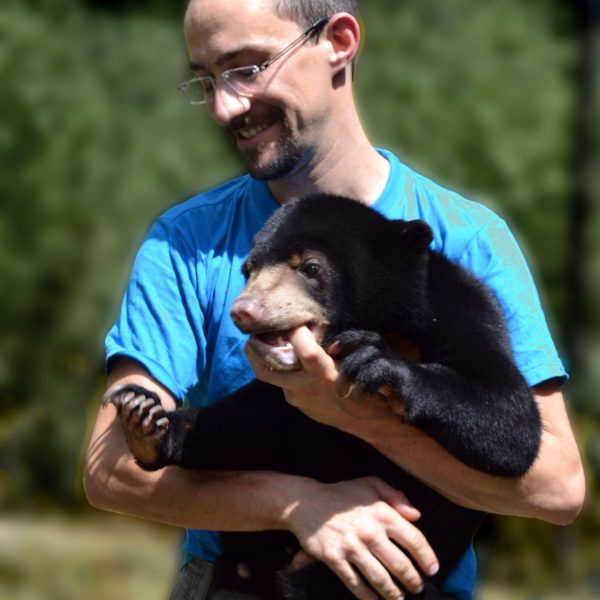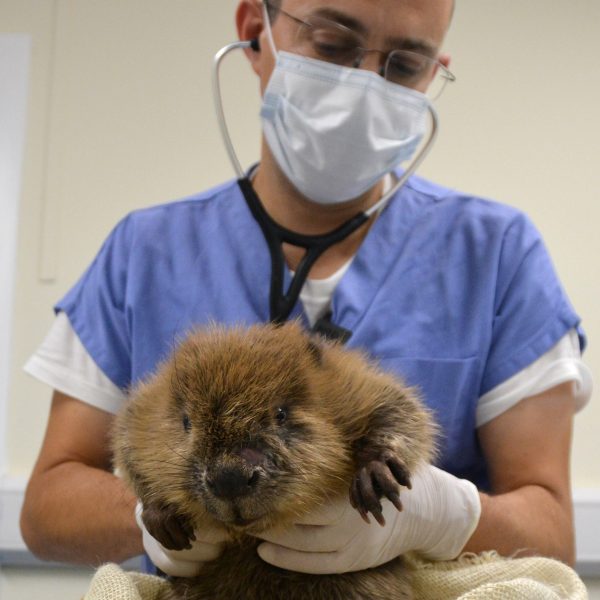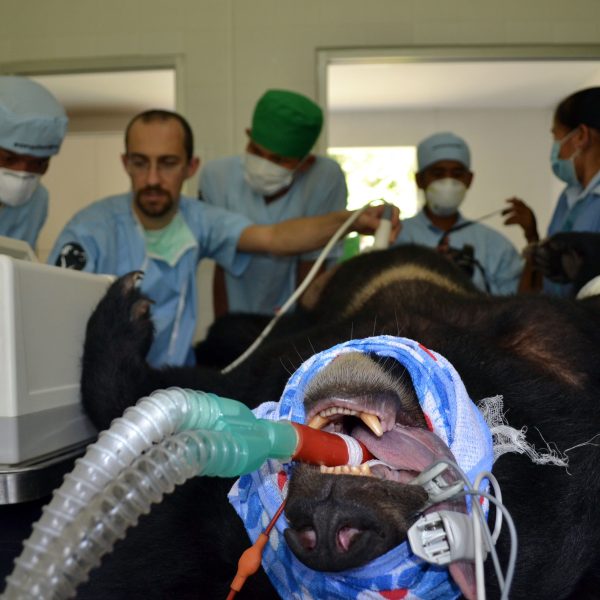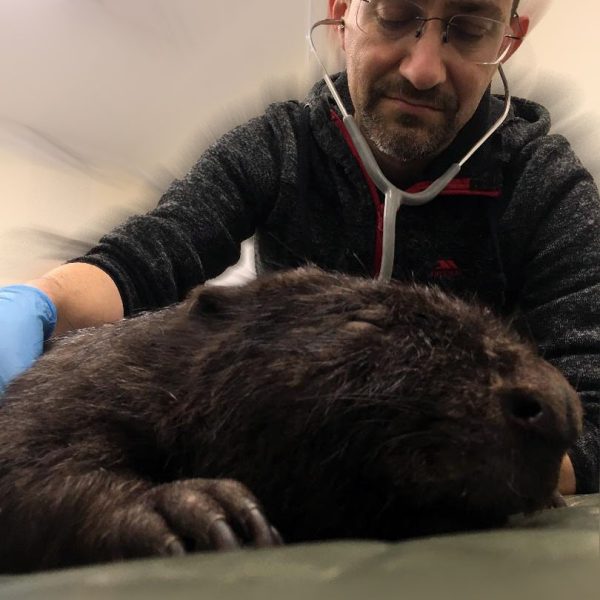Sexing Beavers and Saving Bears: Life as an International Wildlife Vet
Romain Pizzi


Do you know how to sex a beaver? Or what the role of hot water bottles is in taking samples of their blood?
Since the reintroduction of these marvellous semi-aquatic mammals to Scotland, and elsewhere in the UK, these have become essential skills for Edinburgh-based exotic animal vet Dr Romain Pizzi.
Recognised as the world’s leading expert in wildlife surgery Dr Pizzi’s astonishing career has included several world firsts. He was the first person to perform brain surgery on a bear, the first to carry out keyhole surgery on an orangutan and the first to execute a locking plate bone fracture repair on a chimpanzee.
Romain is one of the guests at this year’s Wigtown Book Festival where he will be talking about his work across the globe and his book Exotic Vetting in which he discusses the challenges of treating wild animals including giant pandas and tigers – even performing shark endoscopies.
Closer to home he has become involved with the reintroduction of beavers to Scotland’s rivers, and to rehome them when they are at risk of being shot.
In his own words, “Overall the reintroduction has been a real success and will bring lots of benefits. But when you reintroduce an animal that’s been extinct for over 100 years, especially one that modifies the landscape, there will inevitably be times when it leads to conflict between humans and beavers.
“I think, quite rightly, there’s been a perception that certain landowners have been a bit trigger happy. So one of the mitigation measures we have been taking is trapping beavers and relocating them as an alternative to people getting licences to shoot them.”
This involves checking they are healthy and also identifying what sex they are in order to set them up as breeding pairs in their new homes – as tricky task as their genitals are not visible.
Romain says: “We take blood from the tail. They have big fat tails which they use in the water but the blood vessels are really tiny. So what we do is put a hot water bottle on their tails so the blood vessels expand, which makes it easier to take the blood.
“They don’t have a scrotum and you can’t really see a penis. So what you do when you need to sex them is lift their tail and give their bums a little squeeze. This releases some of the liquid from their anal glands, and this is a different colour for males and females. So it’s a good way of doing it without stressing them out.”
The reintroduction of beavers (which are sometimes blamed for eating fish despite being exclusively vegetarian) is helping restore biodiversity and also providing a natural way to combat flooding.
Romain is closely involved with charities and animal reserves on several continents, and does a great deal of work to train vets in other countries to treat wildlife. One cause to which he’s committed is the rescue of sun and moon bears from bile farms in Laos, Vietnam and Cambodia where they suffer extreme pain and cruelty.
Bear bile is used in traditional medicine, despite having no real benefits, but is also added to foods and drinks as a bizarre status symbol. Once rescued, some need treatment, including dentistry when the bile farmers have smashed their teeth, and others are simply too traumatised after years of being chained in tiny cages to live independently again.
Romain said: “Just this morning I had a call to say that two bears that were being illegally held had been rescued and were on their way to a sanctuary.
“Once there, they will be assessed, go through a little bit of quarantine, and once we know they are safe we will try to reintroduce them to the wild.”
Book your tickets for Romain's talk here.

